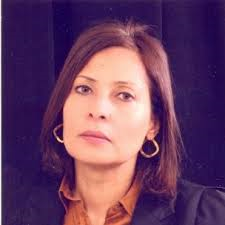By Libya Herald staff.

Tunis, 23 May 2015:
Libya has begun intensive consultations with the European Union over its plans for military action . . .[restrict]against migrant smugglers, the government’s Washington envoy, Wafa Bugaighis has told the Libya Herald.
EU foreign and defence ministers on Monday announced plans to attack migrant smugglers boats, fuel dumps and bases on the Libyan shore.
Bugaighis explained that while there might be support for EU naval action against smugglers in international waters, the government is concerned about plans for action inside its territory.
“We believe an increased EU naval presence (outside territorial waters of Libya) that intends to prevent illegal immigration and smuggling of oil and weapons and drugs, is a possible action to accept. Any further action would require coordination and acceptance from the Libyan authorities,” said Bugaighis.
A government envoy, Nuri Balt Almal, has been sent to Brussels to consult with the EU, and opposition to the plan has been signalled by Libya’s UN envoy in New York, Ibrahim Dabbashi.
Libya says it wants cooperation with the international community, but is concerned about plans for air and naval strikes on its territory.
“We need full coordination and consultation about any further activity,” said Bugaighis. “Human smuggling is not the only smuggling; there is drugs, oil, arms, we believe the international community has a vital role to support Libya’s future.”
In recent months Bugaighis has played an increasingly high-profile role in presenting the case for the country’s recognised government, based in Beida and Tobruk.
She is meeting US officials and members of the US Congress to push for support for that government, locked in civil war against its rival National Salvation antigovernment whose Libya Dawn forces control Tripoli.
One complication for the recognised government is that the migrant smuggling ports are in areas controlled by the Libya Dawn, giving Beida no means of intervening.
Bugaighis said the solution to the migration crisis is political, not military, and will come if Libya achieves a unified government.
“What Europe is proposing right now is a short-term fix. The only long term solution is a stable and prosperous Libya,” she said. “We believe the international community has a vital role to support Libya’s future. My worry is that the EU proposal (to target migrant smugglers) might undermine the peace talks.”
On the peace process, she is hopeful that the current UN draft peace plan, which recognises the Tobruk-based House of Representatives as the supreme authority, could be made to work.
“The House of Representatives is a democratically-elected legislative body,” she said. “It includes members from all over the country, including some who have boycotted it. As a result of the peace talks some of those boycotters came back. The boycotters can rejoin, they are not being excluded. Eight or nine have rejoined and they were welcomed.”
She also defended the embassy’s decision to hire an American PR consultancy, Qovis, saying the contract has now been terminated and denying reports it was paid a million dollars. Many foreign embassies hire PR companies to steer them through Washington’s corridors of power and she said Libya was no different.
“We never paid a million dollars. We discontinued the contract based on reevaluation of their work,” she said. “The Libyan government used to have two PR companies (in Washington).”
She insisted that Mustafa Sanallah was no longer chairman of Libya’s state oil company, the National Oil Corporation, after he represented himself in this role at a London oil conference this week. She said he was dismissed in November. “We have another person appointed as chairman by the internationally recognised government, Al-Mabrook Buseif,” she said.
This last has become a bone of contention in Libya: officials at the NOC, and the Central Bank, both based in Tripoli, have asserted that they are independent of both the recognised government and the Libya Dawn government, while Beida insists that, in common with other world governments, it has the right to decide control of state institutions.
![]() [/restrict]
[/restrict]






